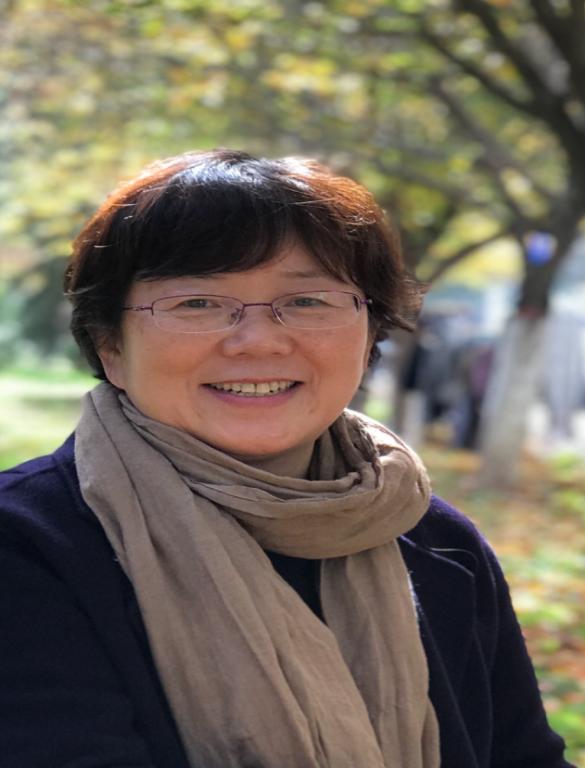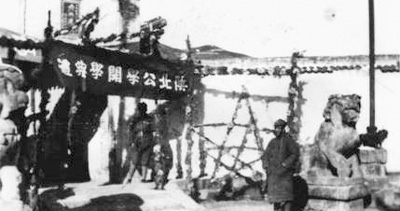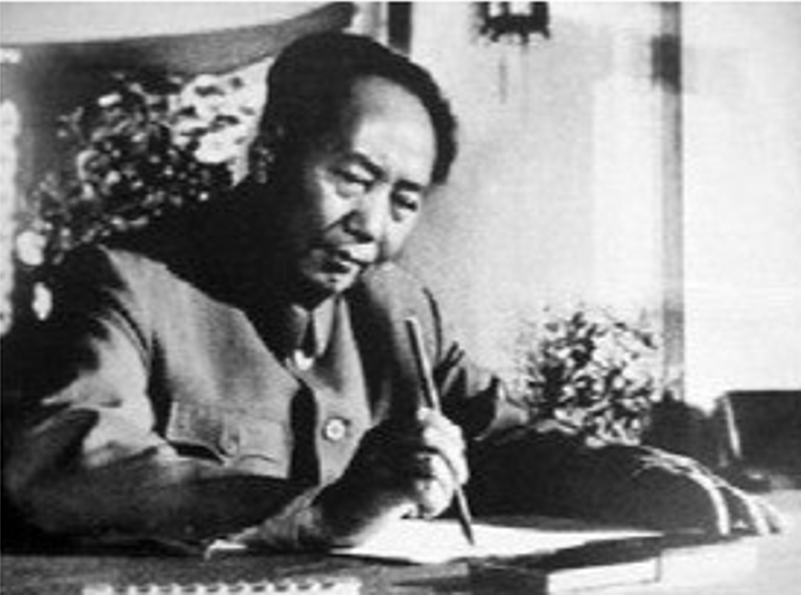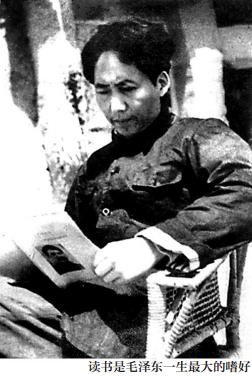教师党员郭粉绒为您推荐
《毛泽东:学习一定要学到底》

推荐人:教师党员郭粉绒
推荐理由:如何学习?毛泽东主席给我们做了全面的解答:一要好学习;二要深入学习;三要终生学习。这些建议弥足珍贵。只有这样坚持不懈的“学到底”,我们才能用知识武装自己,成为工作中的行家里手,国家建设的栋梁。
毛泽东:学习一定要学到底
Mao Zedong on In-depth Study
如何学习?毛泽东强调“学习一定要学到底”。“学到底”表现在三个方面。
How to study? Mao Zedong emphasized in-depth study, which mainly includes three aspects.
首先,端正学习态度,学习要靠“挤”和“钻”。工作忙和看不懂都是不好学的借口。延安学习运动期间,当时中央要求各级干部每天必须挤出两小时来学习。
First, keep a positive attitude toward study. We should study with an enquiring mind and keep it even with a tight schedule. Being too busy at work or being incompetent in learning are just excuses for the lack of interest in study. During the study campaign in Yan'an, the central government required cadres at all levels spare two hours a day for study.

新中国成立之初,毛泽东指出:我们要振作精神,下苦功学习。下苦功,三个字,一个叫下,一个叫苦,一个叫功,一定要振作精神,下苦功。我们现在许多同志不下苦功,有些同志把工作以外的剩余精力主要放在打纸牌、打麻将、跳舞这些方面,我看不好。应当把工作以外的剩余精力主要放在学习上,养成学习的习惯。各级干部一星期必须挤两个半天,有计划地读书学习。
In the early days of the founding of New China, Mao Zedong emphasized the need to cheer up and study hard, and the three essential elements for the success of one’s study: squeezing time, working hard and sparing no efforts. Chairman Mao also pointed out the problems at that time, that is, some comrades did not work hard, and some even spent their spare time in playing cards or Mahjong and dancing, which he believed were not good. He called on people to utilize their remaining energy after work in study and develop the good habit of learning. He asked cadres at all levels to squeeze two and a half days a week to study and read books with a good plan.

其次,在学习内容方面,要尽量“学到底”。毛泽东认为,学习的书有两种:有字的讲义是书,社会上的一切也是书——“无字天书”。读有字的书要做到“先博而后约,先中而后西,先普通而后专门”。一切民族、一切国家的长处都要学,政治、经济、科学、技术、文学、艺术的一切真正好的东西都要学。读无字的书就要在实践中学,特别要在群众实践中学习。
Second, as to the content of study, Mao Zedong believed that it must be an in-depth study. In his opinion, there are two kinds of books: concrete books with words and abstract books about the society without any words. The former should be read extensively and then intensively, with Chinese books first and foreign books second, ordinary books first and specialized books second. He pointed out the necessity to study the merits of all races and states, ranging from politics, to economy, science, technology, literature and art. As to the books without words, it should be studied in practice, especially among the multitudes.

最后,“学到底”还表现在“活到老,学到老”。延安时期,常有领导干部以年纪大为由,认为学习没有希望。毛泽东认为这种想法严重不对,“人到五十五,才是出山虎”,真正的学问是要在“无期澳门沙金在线平台”里点滴积累起来的。为此,“要把全党变成一个澳门沙金在线平台校”,全党同志及非党的战士们,都必须进入这个澳门沙金在线平台校。新中国成立后,好多革命年代成长起来的领导干部年事已高。即使这样,毛泽东还强调要有办法引导高中级干部读书,推广到党政军民学。看不清了,可以印大字版的书。
Thirdly, Mao Zedong insisted lifelong learning. During the study campaign in Yan'an, some leading cadres often believed that they were too old to learn. Mao Zedong criticized this misunderstanding over learning and responded, “A person over fifty-five is just like a tiger out of the mountain, being full of experiences, energy and wisdom and being able to learn and work more effectively. Besides, the real knowledge is accumulated in the University of life in years.” Therefore, he urged the whole Party to become an open university, where all Party members and all the soldiers, including non-Party members, can enter this great university to study. After the founding of new China, many leading cadres who grew up during the revolutionary years were getting on in years. But Chairman Mao still emphasized the need to guide these intermediate and senior cadres to study, and to promote the study activity to the Party, government, military and civilians. He even suggested to make copies in large type for the elderly who could not see clearly.
 地址:西安郭杜教育科技产业开发区文苑南路
地址:西安郭杜教育科技产业开发区文苑南路
 网站:www.ahpxgroup.com
网站:www.ahpxgroup.com
 邮箱:ywxy@xisu.edu.cn
邮箱:ywxy@xisu.edu.cn

 澳门沙金在线平台首页
澳门沙金在线平台首页